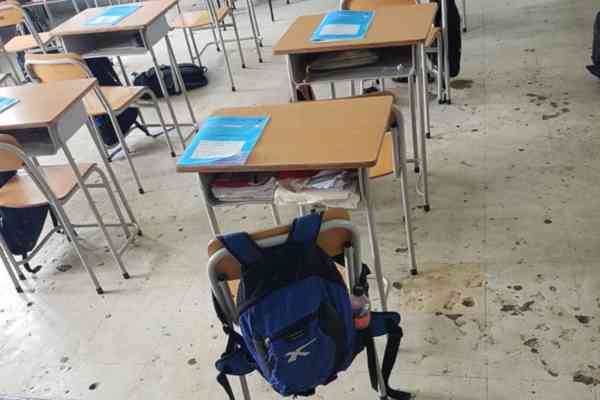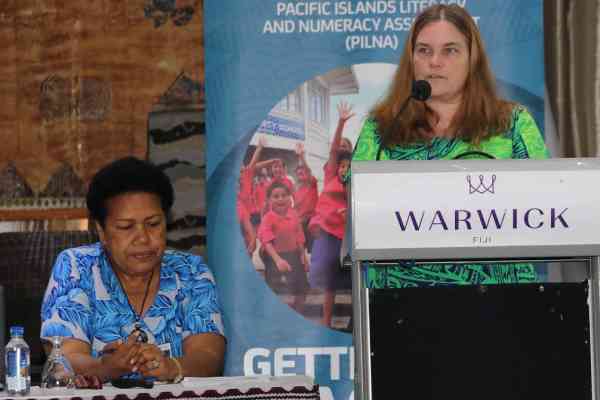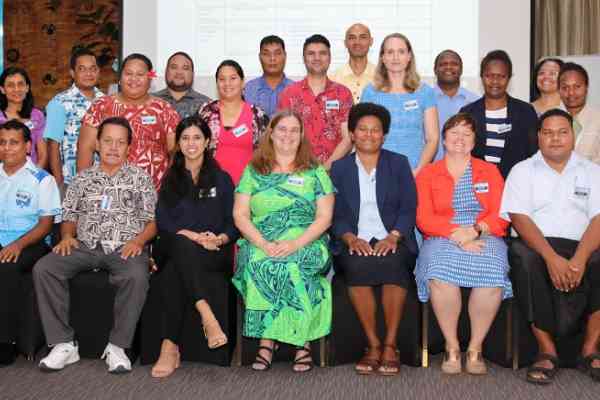EQAP’s numeracy specialist Seru Ramakita conducts a coding workshop with Vanuatu officials earlier in the year. Preparations for the main study, which include coding workshops, have been ongoing despite restrictions in Fiji caused by COVID-19.
The fourth cycle of the Pacific Islands Literacy and Numeracy Assessment (PILNA) study will proceed in November-December this year, despite the challenges posed by COVID-19.
This was decided at a special virtual meeting of the PILNA Steering Committee that was convened by the Pacific Community’s Educational Quality and Assessment Programme (EQAP) last month. The education leaders of the 15 Pacific islands countries that participate in PILNA accepted that the initial schedule of conducting the research in October was not possible because of the lockdown situation in Fiji and the delay in countries’ submitting registration data.
The PILNA research provides comparative data on how well the region’s grades 4 and 6 students grasp foundational literacy and numeracy skills, as well as offers policy-relevant information that can help participating countries to improve learning and teaching in these areas.
In the virtual meeting, the leaders and their national PILNA coordinators, also decided that EQAP allow for a longer PILNA administration window, from early November to early December. This would be three weeks longer than the initial schedule, which was from October 18-29. The five-week window gives countries more time to prepare to administer the assessment, and allows EQAP more time to print, pack and ship the PILNA materials.
EQAP’s Large Scale Assessment Team Leader Torika Tao said the support from the 15 countries’ education leaders was overwhelming.
“All the leaders want the main study to proceed this year despite COVID 19-related challenges and did not wish to postpone it to next year,” she said. “This demonstrates the value of the PILNA instrument to the region.”
The meeting concluded with each country committing to submit the dates of their PILNA administration and the relevant logistics information. The leaders and their PILNA national coordinators, who were also in the meeting, committed to provide the necessary registration information which would allow EQAP to prepare the PILNA materials to ship to the participating schools.
About PILNA:
The PILNA study, which is supported by the governments of Australia and New Zealand and contributes to the goals of the Pacific Regional Education Framework (PacREF), is conducted at the Year 4 and Year 6 grade levels.
The research, which has been conducted every three years since 2012, has evolved into one of the region’s most comprehensive education research tools. It is administered in two parts. There is an assessment component in which the students’ basic literacy and numeracy skills are tested. The other involves questionnaires for the students, their teachers, and their school heads. These questionnaires allow the research to gather extensive information about the contextual factors at school and at home that are associated with the learning and teaching of literacy and numeracy.
EQAP administers the assessment with the technical assistance of the Australian Council for Educational Research (ACER). The 15 participating countries are the Cook Islands, the Federated States of Micronesia, Fiji, Kiribati, Nauru, Niue, Palau, Papua New Guinea, the Republic of Marshall Islands, Samoa, Solomon Islands, Tuvalu, Tokelau, Tonga and Vanuatu.
Media contact:
Irene Manarae, EQAP's Communications Assistant | E: [email protected]


